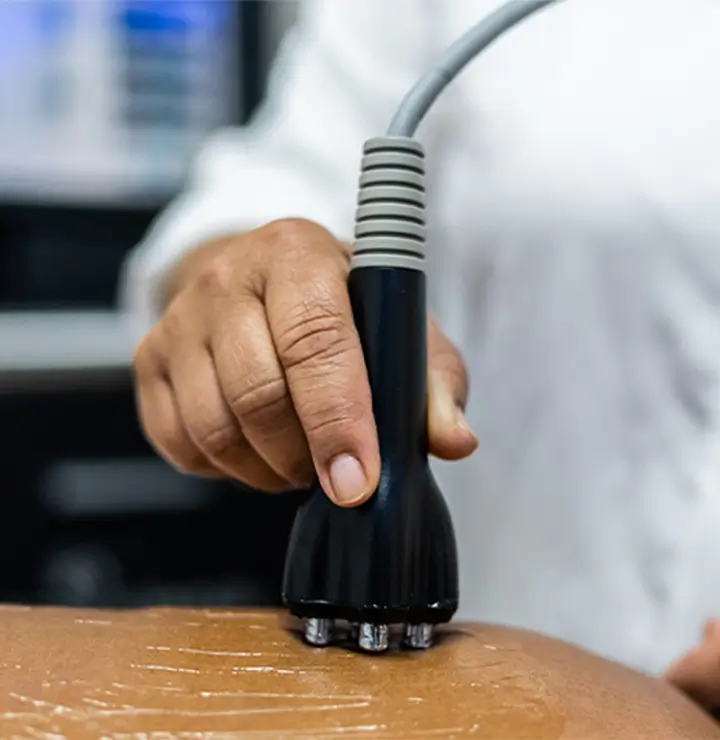Radiofrequency Treatment
Radiofreqency treatment utilizes a specialized generator that produces a current that passes through a needle, which is heated by the current.
When the needle is placed near the facet joints, the painful area is heated, destroying nerve tissue surrounding the facet joint, interrupting pain signals from the joints.
To be seen by one of our specialists, call 949-UCI-PAIN (949-824-7246) or request an appointment online.








